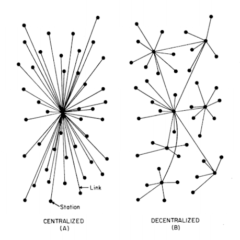M. A. Muqtedar Khan, 2014
Highlights key aspects of the Islamic theological tradition with interlock with contemporary notions of democracy. Points out that Muhammad did not rule by force, but by contract with adjacent/co-habitational Jewish tribes (Yahud) as well as natives and immigrants to Medina from Makkah. The aspect of consultation draws comparison to the consultative nature of the Chinese Communist Party and its distinction from a strictly democratic process. Bayah is a key point of comparison as the author argues its modernization would be represented in electoral balloting. Bayah was a formal process of pledging allegiance to the ruler which was required to enshrine their legitimacy.
This article was promising but is rather short and fails to expose sufficient historical insights into the operations of historic Islamic polities. A deeper analysis would be required for a stronger justification; whether one was looking for democratic compatibility or non-Western traces of democracy in the past.
Contained in the book linked below.
P R E V I E W
